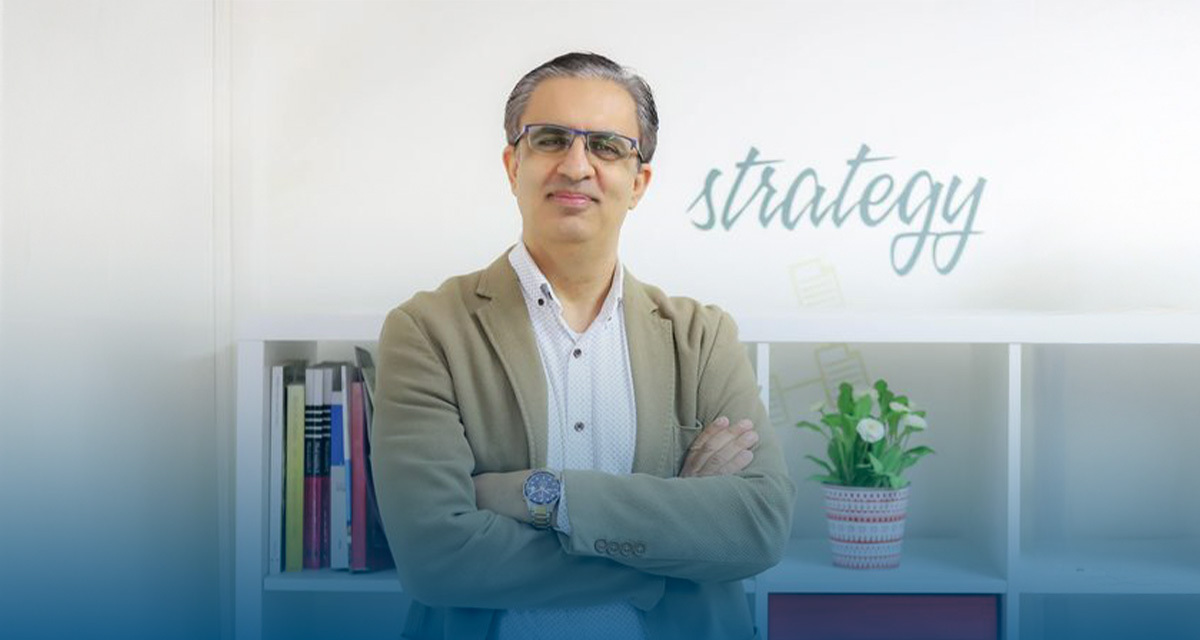Anan Copty ’94: A Palestinian Christian Physicist’s Quest to Cure Cancer and Build Peace
Anan Copty ’94 (physics), Gordon College’s Alumni of the Year for 2024, is a Palestinian Christian with an Israeli passport. He’s worked in fields like astrophysics and semiconductor development and production, from the Harvard Physics Department and the Harvard-Smithsonian Astrophysics Center, Harvard Medical School, to Intel and RF MEMS. He helped build the space-instrument satellite SOHO, which is still in orbit measuring parts of the sun, and MRI machines for Brigham and Women’s Hospital.
Perhaps his greatest achievement yet is starting his own company, SynergyMed, which develops noninvasive cancer treatments while employing people of all faiths and backgrounds. “When I first started SynergyMed, one of my missions was to treat cancer, but also to have an integration of people—Palestinians, Israelis, and more—to demonstrate that we can work together in a peaceful way despite the conflict,” he says.
A New Cancer Treatment
After a long career in Boston, Copty returned to Jerusalem to earn a Ph.D. in physics and then took a job at Intel. But as the years passed, he noticed many of his friends were passing away from breast cancer. This prompted Copty to start researching cancer treatments. Every available option had terrible side effects; chemo and radiation therapy would destroy tumors but also healthy tissue and immune systems. Surgery also significantly impacts the quality of life for patients.
Copty wanted to use his background in medical physics to figure out how to nonsurgically shrink a tumor without hurting the patient. He founded SynergyMed in 2019, hiring engineers, physicists and doctors from a variety of ethnic and religious backgrounds to develop medical devices that could treat cancer without side effects. The device they created uses thermal ablation technology to kill tumors in mice in only a few days, and in 10 days with larger animals.
Copty is optimistic that SynergyMed’s device will be effective in its current human trials stage. If it is, and the FDA approves it, the device could be revolutionary for cancer treatment of solid superficial tumors in humans and the veterinary market. And once the company has raised enough capital, SynergyMed aims to take its technology to every country in the world and help everyone who has need of it, regardless of who they are. “I feel like all people deserve to have a better quality of life,” Copty says.
Working Towards Conflict Resolution
SynergyMed has a dual mission. Besides providing better alternatives for cancer treatment, Copty also hopes his company will be an example to the world of bringing hope and reconciliation to the Middle East conflict and other war-stricken areas by hiring workers from different religious and ethnic backgrounds—including Christians, Muslims and Jews—in an employment model that is rare for the region.
“In Palestine there are really not that many innovative companies right now,” he says. “The political situation takes up so many resources, so a lot of the talented people in science, business and engineering actually end up leaving the country, or they are working in a bakery or in a gas station. So, when they work with me at SynergyMed, they feel like they’re doing something great; it has a good impact.”
As SynergyMed grows Copty hopes one day, when things are more stable, to form a partnership with Gordon College to bring student interns to Jerusalem to work at his company there, and then send employees from the Middle East to work at a base for SynergyMed near Gordon.
“I want to reach as many patients as possible, all over the world,” Copty says. “We want to have a diverse group of people who work together and learn about the goodness of each other and practice kindness—to see more humanized versions of each other.”
Listening, Learning and Loving
Through every twist and turn of Copty’s eclectic career, the theme of his journey has been loving and learning from people vastly different from him because he was willing to listen to them.
“A lot of the education I got at Gordon was from hanging out with other students and having midnight discussions about things like women being priests or ministers, how the church can show love to gay people, gun control issues, war and peace…a lot of those discussions happened in a nice, friendly way,” he says.
When he worked in Boston alongside non-Christians, physics provided an opportunity for Copty to have conversations about faith with some of the smartest people in the world. “Most scientists unfortunately think that if you are a real scientist, you should be anti-religion, because they think there’s no proof for religion,” he says. “But then when we had actual discussions, and they heard my point of view, they said, ‘Well, maybe we don’t believe in what you believe. But at least you are showing it in a different way to us.’”
SynergyMed wasn’t Copty’s first entrepreneurial venture, either. His first attempt at starting a company to treat cancer failed. But then he went back and listened to real cancer patients and survivors to see what they needed from treatment, not what he thought they needed. He had to be willing to humble himself and learn more about running a business to make his second attempt succeed. More discussions like these are what will help our broken world heal—and it has to start from a place of love.
“I think Gordon is a great place to help think and go through these questions and discussions, and I think it helped me a lot,” he says. “So, my message is to try to be Christ-like. Christ was about love and loving everybody, no matter what they are, no matter their political beliefs or religion.”
 The Bell
The Bell